
Cooking up a comedy storm with Chef!
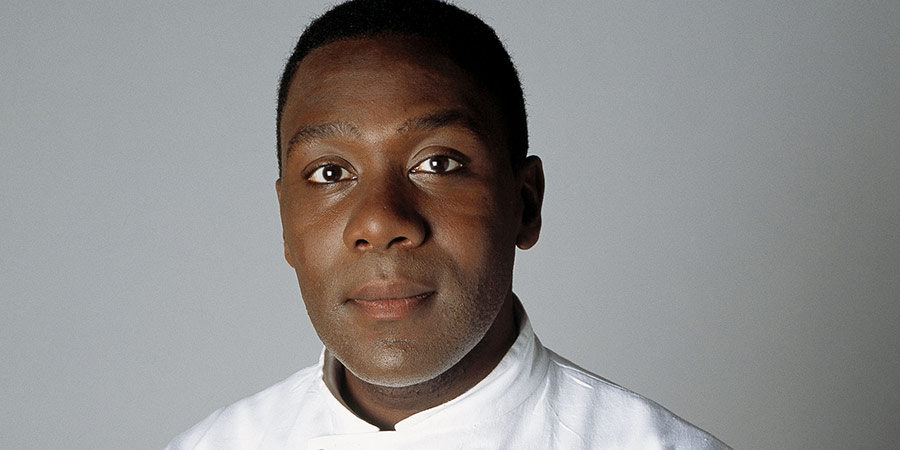
How much do sitcoms really affect the overall television landscape? You'd be forgiven for thinking the answer is, in all honesty... not that much. Not fundamentally, anyway. Beyond the realm of their thirty minutes, can a comedy series actually change television?
Some might argue that The Office had a huge impact on the media landscape; it's certainly a series that continues to influence the way sitcoms are made. In truth, similar things have happened from time to time throughout the grand history of British comedy. Shows such as Steptoe And Son, Monty Python's Flying Circus, Only Fools And Horses and The Young Ones all, in their own way, changed approaches to television as they reflected Britain's changing social attitudes. Satirical series such as Spitting Image and That Was The Week That Was arguably went further, impacting upon how not just politicians were viewed, but our feelings toward and estimations of wide swathes of established, ruling classes.
In terms of actual commissioning, shows such as Charlie Brooker's Screenwipe or Harry Hill's TV Burp have made a perhaps unexpected impact. Hill has recounted being personally thanked by a producer for being single-handedly responsible for the recommissioning of BBC Three's Freaky Eaters (due to the popularity of its weekly hammering on TV Burp). These sorts of things may well happen more often than we realise and it can be assumed that there are many more similar examples littered throughout the history of comedy. However, one of the most interesting is Lenny Henry's 1993 BBC sitcom, Chef! - a series that seems to have quietly created something of a global TV phenomenon.
Chef! was not Lenny Henry's first sitcom. He had started his career performing in working men's clubs in the early seventies, securing his big break in 1975 when, aged just sixteen, he won the popular ITV talent show New Faces with his impressions of Frank Spencer (amongst others). Soon after he took the role of Sonny in family comedy The Fosters, British television's first black sitcom. Adapted from a hit US format, it co-starred future Desmond's legend Norman Beaton as his father, and although ground breaking only ran for two series.
Soon he was appearing on children's entertainment staple Tiswas, a job that he would continue into the early eighties, appearing in a range of recurring character sketches alongside madcap studio entertainment. Honing his act and becoming increasingly connected with the growing alternative comedy scene and in particular the collective of The Comic Strip, the decade would see Henry excel and truly make his comedic mark in the sketch format; first with the popular Three Of A Kind alongside Tracey Ullman and David Copperfield, and from 1984 his own self-titled BBC series, which would return in various guises right up until 2005.
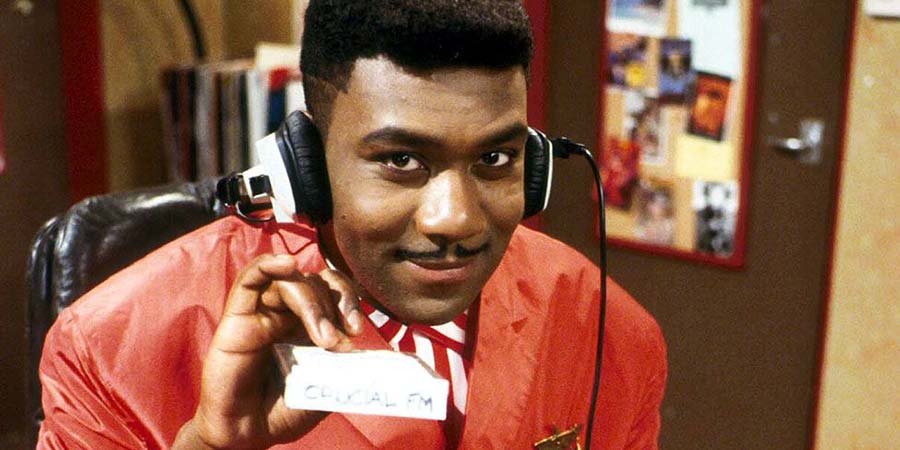
One character - loud-mouth, incorrigible, irrepressible pirate radio DJ Delbert Wilkins - proved popular enough to warrant his own sitcom spin-off: The Lenny Henry Show of (1987-8) was dedicated to the self-appointed fashion icon and his adventures running the Brixton Broadcasting Corporation from the back room of a grotty café in the south London enclave.
However, Lenny's previous TV roles had little in common with Chef!. Written by the prolific Peter Tilbury (an actor and acclaimed writer who had previously created the likes of Shelley and It Takes A Worried Man...), it was conceived by Lenny Henry himself. It follows Gareth Blackstock, the acid-tongued head chef of Le Chateau Anglais - an ailing French restaurant located in an Oxfordshire country house. He introduces himself to us with great aplomb in the opening episode:
I am Gareth Blackstock, I am seriously unpleasant.
Scaring other chefs witless, he explains that he has one aim in life, and that is to serve the finest, most immaculately prepared meals. "If it's at the cost of a few human lives," he adds, "that's fine by me."
Despite Gareth's abrasive nature, Lenny Henry manages to inject likeability into the character: he's not devoid of heart, and despite the façade, at his core Gareth is a protagonist you can root for, even in the face of his insane tirades - "I'm a raving bloody lunatic!" he declares randomly during the first episode. Although he had a hand in creating him, Henry admitted that he did have initial concerns about such a monster:
The first episode of Chef! was developed over two years, and so Peter Tilbury and I were really put through loads of hoops about character motivation. Why is this character such an arsehole?
Chef! played on the fierce reputations of culinary giants such as Marco Pierre White, and even employed John Burton-Race to act as a food consultant for the show. Yet, these figures were not yet widely known in the world of television. TV chefs have of course long been popular, and they could be seen as austere, but on-screen they had yet to reach the Fawlty Towers level of catering-based anger that we see in comedies. But to Gareth's character there was a nod to sitcom's prior cantankerous leads - you can certainly detect a sprinkling of Basil Fawlty, particularly in Chef!'s most famous scene, where a diner is berated for, without even tasting their meal, having the audacity to ask for some salt.
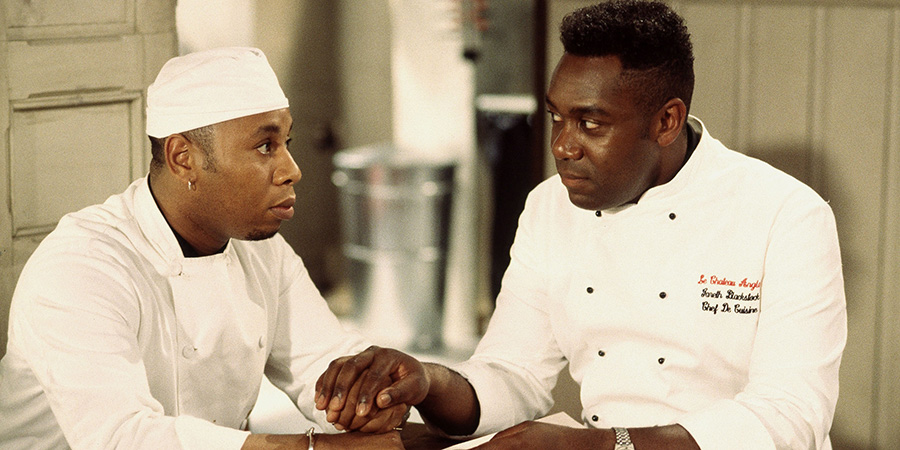
The kitchen staff of Le Chateau Anglais changed with every series: a bold choice for the show. There was, however, one of Gareth's team who always remained in place; someone he had been known to despise and frequently call 'the lowest form of life in his kitchen' - his plucky ex-school mate, Everton (played by Roger Griffiths).
As a French chef Everton's skills are minimal, but when he's cooking Caribbean food - in particular his legendary dumplings with their secret ingredient (Daddies Sauce) - he can outperform even Gareth, much to his boss's disdain.
It is Everton and Gareth's relationship that ultimately underpins and drives the series. Everton is an endearing character, his unwavering enthusiasm continually wearing on Blackstock's patience. Unusual as it was to have Henry essentially playing the straight man, here it makes for a winning combination. His tirades are immaculately performed and, as with any good actor, you stop thinking about Lenny Henry performing and see only Gareth Blackstock.
One of the more interesting aspects of Chef! is in how the series was approached as a sort of sitcom/drama. Gareth's relationship with his wife, Janice (Caroline Lee-Johnson) is often presented to us quite sincerely, and to emulate the style of a serious drama, the show was shot using a single camera and no studio audience, a relatively unusual way of making a sitcom at the time.
An enormous amount of care and attention to detail was poured into the production. Henry was coached in cooking techniques to give a more authentic performance, while both the fictional restaurant and set of the kitchen itself were modelled on Raymond Blanc's Belmond Le Manoir aux Quat'Saisons in Oxford. The series also boasts one of the coolest opening themes in all of sitcom - certainly one that, in the early nineties, would have announced Chef! as an impressive and different kind of show.

In fact, there's a strong case for calling Chef! a landmark sitcom. There are several reasons why, but one of the more striking was that it was one of the first BBC sitcoms to star a predominantly black cast. As mentioned above, Henry had co-starred in TV's first - The Fosters - but that was from LWT. 1993 seems terribly late for such a landmark to be reached, but outside of Channel 4's Desmond's, British sitcoms that put talented actors from any ethnic minority front and centre were still few and far between.
Chef! brought something else new to the sitcom landscape. Running for three series, it landed a Christmas special and was even nominated for a BAFTA. Plans were in place for a fourth series, although budget cuts having already affected the third outing, it unfortunately failed to materialise. Yet Chef! predates most culinary shows marketed on the basis of chefs behaving outrageously by more than a decade.
It would of course be a stretch to say that Gordon Ramsay, or indeed any other TV chef who has risen to fame on a similar pedestal of aggression, modelled themselves on Gareth Blackstock, but it's hard not to think that Chef! must have put a thought in many producers' minds that a camera in a real kitchen with a real hot-headed chef could prove very lucrative.
Back in the comedy world it would be years before another restaurant-set sitcom would be attempted. The next of particular note was Chef! born anew, as Alan Davies took the lead role in Whites (2010).
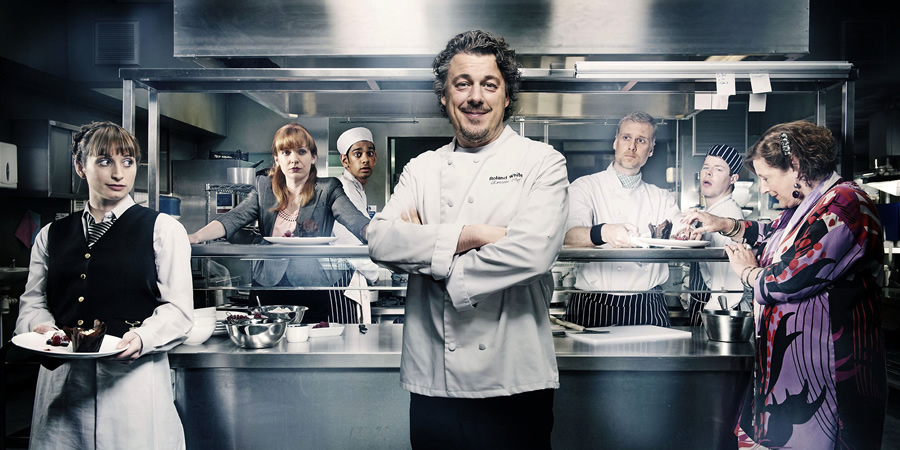
Written and created by Oliver Lansley and Matt King, Whites drew from the latter's own experiences working in restaurants, and as with Chef! before it, Whites also earned a cult following before being brought to an untimely end. Fans (unsuccessfully) petitioned BBC Two to reverse their decision when news broke that it had been axed. So why didn't Whites take off? Well, criticism of the series from Metro stated that "the problem with doing a comedy about chefs and restaurants is that the real thing does it so much better".
It's hard to deny this point. Whilst Whites arrived toward the end of the boom in reality TV chef programming and thus was not crowded out of the televisual landscape, it meant that the "real thing" was well-established and relatively fresh in viewers' minds. How do you mock something that is already utterly outrageous? It's a growing problem in the world of satire.
Watching Chef! today one is certainly put in mind of Ramsay or Pierre White. Similarities between the series and reality cooking shows from the mid-2000s are simply extraordinary. Viewers witnessed absurd antics in the heyday of ITV's Hell's Kitchen as chefs hurled cutlery draws at the celebrity staff, while elongated dramas played out that invariably resulted in the entire kitchen being dramatically closed during service in almost every episode for any minor indiscretion.
One episode of Chef! sees Gareth quit the business to focus on his failing marriage. This throws the restaurant into utter chaos - a complete kitchen meltdown ends with a character being taken out with a frying pan to the face.
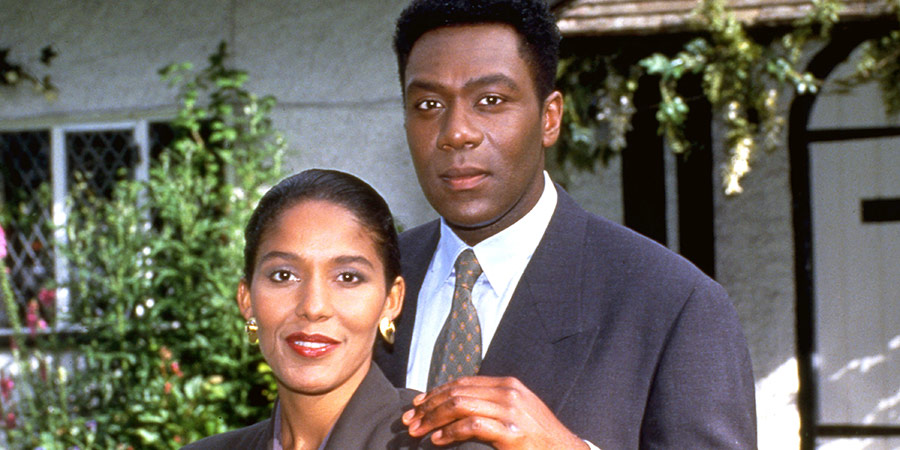
For all of the sitcom's heightened reality, Hell's Kitchen proved just as fantastical and in some cases perhaps even more so. To parody itself was a natural progression, as Gordon Ramsay (whose own brand of chef drama had proven massive in the states) sent himself up in a sketch with James Corden, including a recreation of the much-shared meme of Ramsay squashing a slice of bread on either side of American TV talk show host Julie Chen's face and asking her to exclaim "I'm an idiot sandwich!"
All this undoubtedly played a part in killing the restaurant sitcom. It is a prime example of reality TV if not replacing, then certainly encroaching on comedy's place within the schedules.
It seems generally unfair to the world of comedy that social media and entertainment formats have come along to win success with ideas that seem more than a little inspired by sitcoms, stifling the original genre as a result. It's not just Chef! that has run into this problem. Take Channel 4's Gogglebox - the BAFTA Award-winning series that sees families up and down Britain reacting to the week's TV. Its producers have made little secret that its premise was heavily inspired by The Royle Family (hence Caroline Aherne as the natural choice to narrate the initial series). Indeed it 'borrowed' from not one but two comedy formats, the original pitch for Gogglebox describing the show as "a mix of Harry Hill and The Royle Family".
Ultimately no reality show, however self-deprecating or intelligently put together, could ever replace the TV sitcom, nor the sharp edge of a skilfully scripted satire. It may injure, but it will not kill. Reality TV is fine for a while, but comedy is set in stone. So, the next time you see a chef behaving badly on your TV screen spare a thought for Lenny Henry's Gareth Blackstock - he was the original chef.
Where to start?
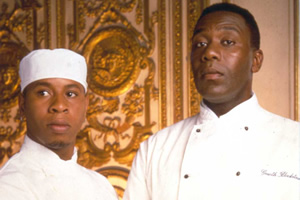
Series 1, Episode 3 - Subject To Contract
As the restaurant teeters on financial ruin, Gareth Blackstock tries to raise his profile by agreeing to an interview with an infuriatingly chirpy journalist. 'I love summer!' she declares randomly to him, 'your biro always writes so well!' Meanwhile, Everton has lost a plaster and must pull apart hundreds of pies and ravioli to find it before his boss seriously considers killing him.
Help us publish more great content by becoming a BCG Supporter. You'll be backing our mission to champion, celebrate and promote British comedy in all its forms: past, present and future.
We understand times are tough, but if you believe in the power of laughter we'd be honoured to have you join us. Advertising doesn't cover our costs, so every single donation matters and is put to good use. Thank you.
Love comedy? Find out moreChef! - The Complete Series One - Three

All 19 episodes of the British comedy series starring Lenny Henry as Gareth Blackstock, the volatile chef of the Chateau Anglais restaurant.
First released: Monday 2nd October 2006
- Distributor: 2 Entertain
- Region: 2 & 4
- Discs: 3
- Minutes: 570
- Subtitles: English
- Catalogue: CCTV30431
![]() Buy and sell old and new items
Buy and sell old and new items
Search for this product on eBay
BCG may earn commission on sales generated through the links above.
- Released: Tuesday 30th August 2005
- Distributor: BBC Worldwide
- Region: 1
- Discs: 3
- Minutes: 580
![]() Buy and sell old and new items
Buy and sell old and new items
Search for this product on eBay
BCG may earn commission on sales generated through the links above.

